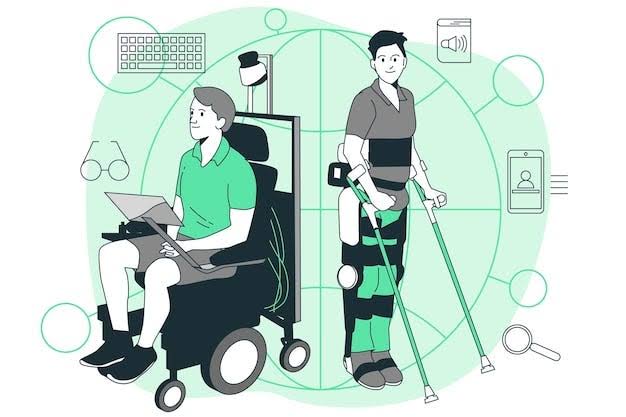Quantum computing is no longer a concept confined to science fiction. As of 2025, it has emerged as one of the most transformative technologies of the 21st century, promising to revolutionize industries ranging from cybersecurity and drug development to finance and artificial intelligence. Unlike classical computers that use bits, quantum computers operate using quantum bits—or qubits—which harness the strange and powerful principles of quantum mechanics.
This shift from classical to quantum represents more than just a technological upgrade; it’s a complete rethinking of how computation can be done. As researchers continue to overcome longstanding technical barriers, we are getting closer to a future where quantum computers can solve complex problems that are impossible or would take thousands of years for today’s best supercomputers.
How Quantum Computers Work
At the heart of quantum computing are two fundamental concepts from quantum physics: superposition and entanglement. These allow quantum computers to perform calculations in ways that defy classical logic.
- Superposition enables a qubit to exist in multiple states at once. While a classical bit can be either 0 or 1, a qubit can be 0, 1, or both at the same time. This allows quantum computers to process a massive number of possibilities simultaneously.
- Entanglement means that qubits can be linked together in such a way that the state of one qubit instantly affects the state of another, no matter how far apart they are. This property enables ultra-fast computation and information sharing across the system.
Quantum gates and circuits operate very differently from traditional logic gates, offering exponentially greater computing power for specific types of problems. However, this also makes quantum programming more complex, requiring new tools, languages, and ways of thinking.
Key Players and Breakthroughs
Several tech giants and startups are racing to develop scalable quantum hardware. Major contributors in 2025 include:
- IBM, which continues to release more powerful quantum processors via the IBM Quantum Roadmap
- Google, which made headlines for achieving quantum supremacy and is now working toward error-corrected systems
- Intel and Microsoft, both focusing on different physical approaches like silicon spin qubits and topological qubits
- D-Wave, specializing in quantum annealing for optimization problems
Academic institutions and government agencies around the world are also investing heavily in research and talent, recognizing that quantum leadership could shape the future of global technology and security.
Applications Transforming the Future
Quantum computing is not a replacement for classical computing but a powerful companion for solving problems that classical machines can’t handle efficiently. Some of the most promising areas include:
- Cryptography – Quantum algorithms like Shor’s algorithm could break current encryption methods, which has led to the development of quantum-resistant cryptography.
- Drug discovery – Quantum simulation of molecular interactions can vastly accelerate the development of new medicines by modeling chemical processes with atomic precision.
- Optimization problems – From logistics and supply chains to traffic systems and manufacturing, quantum computers can process vast numbers of variables and constraints in real time.
- Financial modeling – Predicting market behaviors, risk assessment, and portfolio optimization could be drastically improved with quantum-enhanced simulations.
- Climate modeling and energy research – Quantum algorithms can analyze complex systems like weather, climate, and energy grid networks, offering better solutions for sustainability.
Challenges in Quantum Computing
Despite the promise, quantum computing still faces several challenges that need to be resolved before widespread adoption:
- Error rates – Qubits are extremely sensitive to environmental noise, causing decoherence and loss of information.
- Scalability – Building quantum systems with millions of stable qubits remains a difficult engineering hurdle.
- Cryogenic requirements – Many quantum computers require extremely low temperatures to operate, which makes hardware large, expensive, and energy-intensive.
- Software development – There is a lack of standardized tools, programming languages, and error correction protocols suitable for quantum systems.
Solving these problems is an ongoing effort that involves collaboration between physicists, engineers, computer scientists, and industry leaders.
Quantum Supremacy and Beyond
Quantum supremacy refers to the moment when a quantum computer performs a task that a classical computer cannot achieve within a reasonable time. Google claimed this milestone in 2019, but practical, everyday applications remain in development.
In 2025, companies are working toward quantum advantage, which goes a step further by making quantum computing both practically useful and more efficient than existing classical systems for real-world tasks.
Cloud-based quantum computing platforms like IBM Quantum Experience and Amazon Braket are already allowing researchers, students, and businesses to experiment with quantum algorithms in simulated or limited environments.
What the Future Holds
As quantum technology advances, we can expect:
- More powerful and stable quantum processors
- The emergence of hybrid computing systems, combining classical and quantum computing
- Greater access to cloud-based quantum environments for education and enterprise use
- New jobs and career paths centered around quantum programming, research, and engineering
- Major policy shifts related to cybersecurity, intellectual property, and international tech competition
Governments are likely to implement quantum initiatives and regulations, while industries such as pharmaceuticals, finance, and logistics begin to integrate quantum-based solutions for competitive advantage.
Conclusion
Quantum computing represents one of the most significant technological frontiers of our time. While still in its early stages, the momentum in 2025 suggests that we are rapidly heading toward a world where quantum power will reshape how we solve problems, protect data, and understand nature itself.
Understanding quantum computing is no longer reserved for physicists—it’s becoming essential knowledge for anyone interested in the future of technology, innovation, and the digital world. As research turns into practical application, quantum computing will gradually become a key part of our technological landscape.




Nice speech